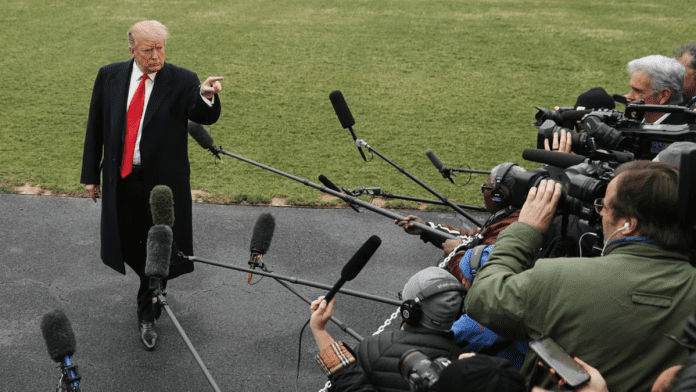🕒 Last updated on August 16, 2025
When the U.S. government announced that it would remove the legal basis for regulating climate pollution, the news shook environmental experts and health advocates alike.
Rare access during major climate rollbacks
The decision targeted the Environmental Protection Agency’s core authority, which for years had allowed the government to limit greenhouse gas emissions. Without that foundation, rules on power plants, cars, and other polluting industries could be stripped away.
This was one of the most consequential environmental decisions in modern history. At the same time, a few senior officials responsible for these actions appeared on major television news programs outside of their usual friendly platforms. These appearances were rare. For years, they had largely limited interviews to supportive channels that helped frame their decisions as economic reforms or legal housekeeping.
When they finally sat down with anchors from larger networks, viewers had a chance to hear direct questions about climate science and public health. These moments should have been key opportunities to demand answers. Yet instead of firm challenges, interviews often became polite conversations that left the officials free to present their own stories without being pushed to explain contradictions or consequences.
How interviews blurred the stakes
In one interview, a senior energy official promoted a government report designed to downplay the risks of climate change. The report suggested that rising carbon dioxide could be good for plant growth and that climate change was not a major threat. These claims went against the findings of respected scientific bodies that had documented rising seas, worsening storms, and major health risks.
The anchor did raise concerns about the rushed timeline of the report, its selective authors, and the fact that scientists said their work had been misrepresented. But instead of pressing hard, these challenges came one by one, without linking them together. That allowed the official to brush off criticism as part of a normal debate. By framing objections as “some people say,” the interview gave the impression that climate science was still up for dispute, even though the broad scientific community is clear about the dangers.
Another interview focused on the Environmental Protection Agency’s decision to repeal the endangerment finding. The anchor explained the background clearly, but the follow-up questions often landed softly. When asked about rising insurance costs linked to climate disasters, the official replied by saying carbon dioxide had helped green the planet and that emissions had already fallen. These points were misleading. One reframed pollution as beneficial, while the other used emission reductions as an excuse to remove the very rules that drove those reductions.
The contradiction went unchallenged. The official was not asked how both points could be true or how they justified removing core climate protections. By the end, the conversation had shifted into general remarks about whether the government should even play a role in addressing climate change. The sharp focus on the actual consequences of repeal had faded away.
A pattern of deference
These interviews were not isolated cases. Similar patterns have played out across other networks. Officials have appeared on Sunday morning political shows to defend cuts to climate funding or rollbacks of environmental safeguards. Instead of sustained questioning, hosts often let vague economic claims or legal talk pass without challenge. In one case, a senior leader was asked about removing billions in climate funding, but there was no mention of the public health costs or the impact on vulnerable communities.
✈️ From Gala Nights to Private Flights — The Unseen History of Trump’s Relationship with Epstein
The problem is not that anchors avoided the subject entirely. They did bring up important issues—from insurance crises to scientific disagreements. But they often treated each point as a separate question instead of connecting them to the bigger picture. This approach made it easier for officials to deflect, reframe, or downplay the consequences of their decisions.
Meanwhile, friendly platforms continued to offer them safe space to defend their agenda, framing regulatory rollbacks as economic growth measures and climate programs as wasteful spending. By the time these officials appeared on mainstream outlets, they were well-practiced at using process language—words like “public comment,” “legal authority,” or “dialogue” to sidestep accountability.
For viewers, the effect was confusing. Instead of a clear picture of how government actions could weaken climate protections and increase risks to health and safety, audiences were left with mixed signals. Climate denial and deflection were presented side by side with science, as if both were simply different opinions.
These were rare chances to confront decision-makers about policies with immediate and far-reaching effects. Yet the tone of deference, the reliance on false balance, and the lack of sustained pushback meant that the public did not get the full truth. The consequences are not abstract. They shape the air people breathe, the stability of homes and communities, and the resilience of future generations.

